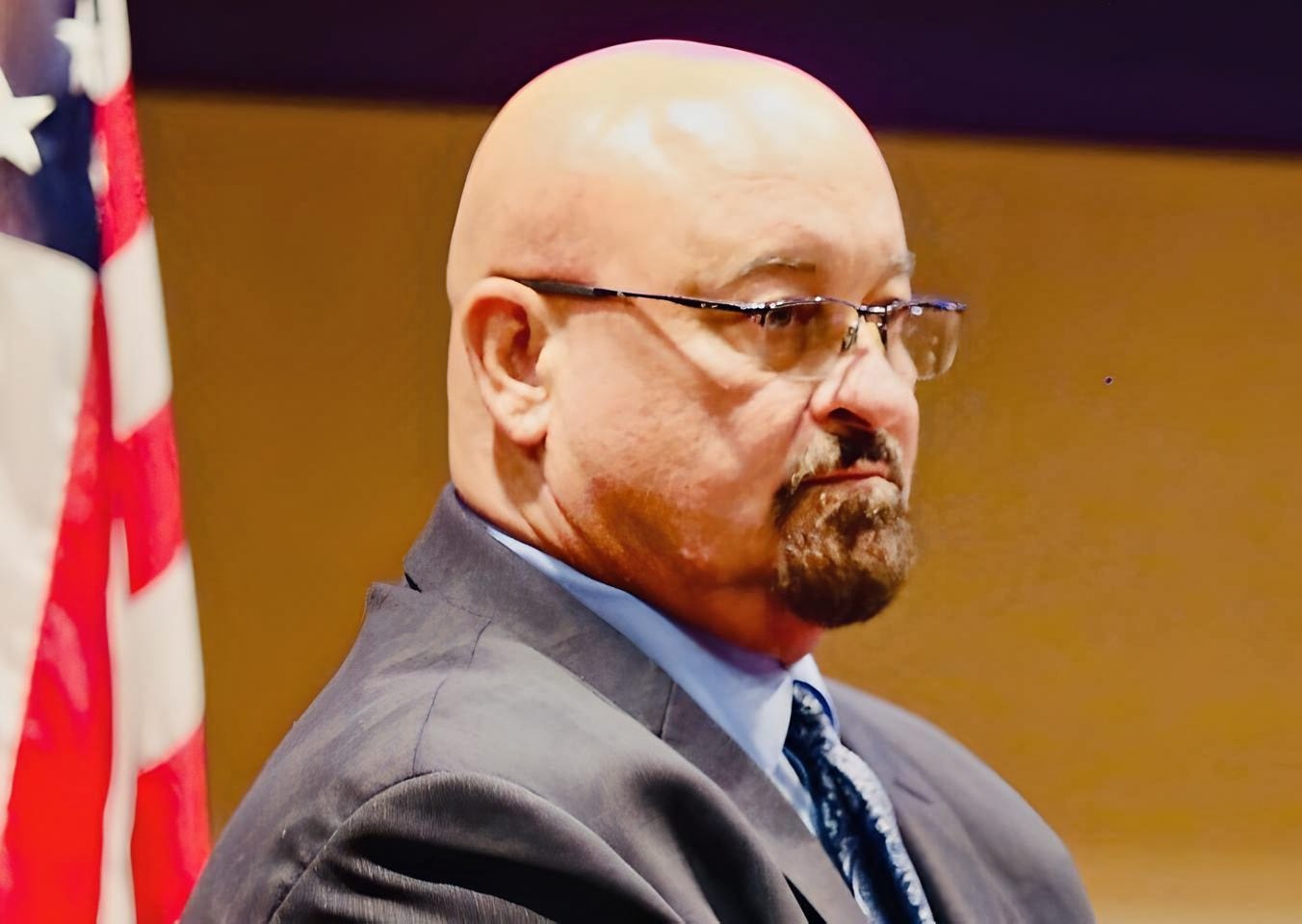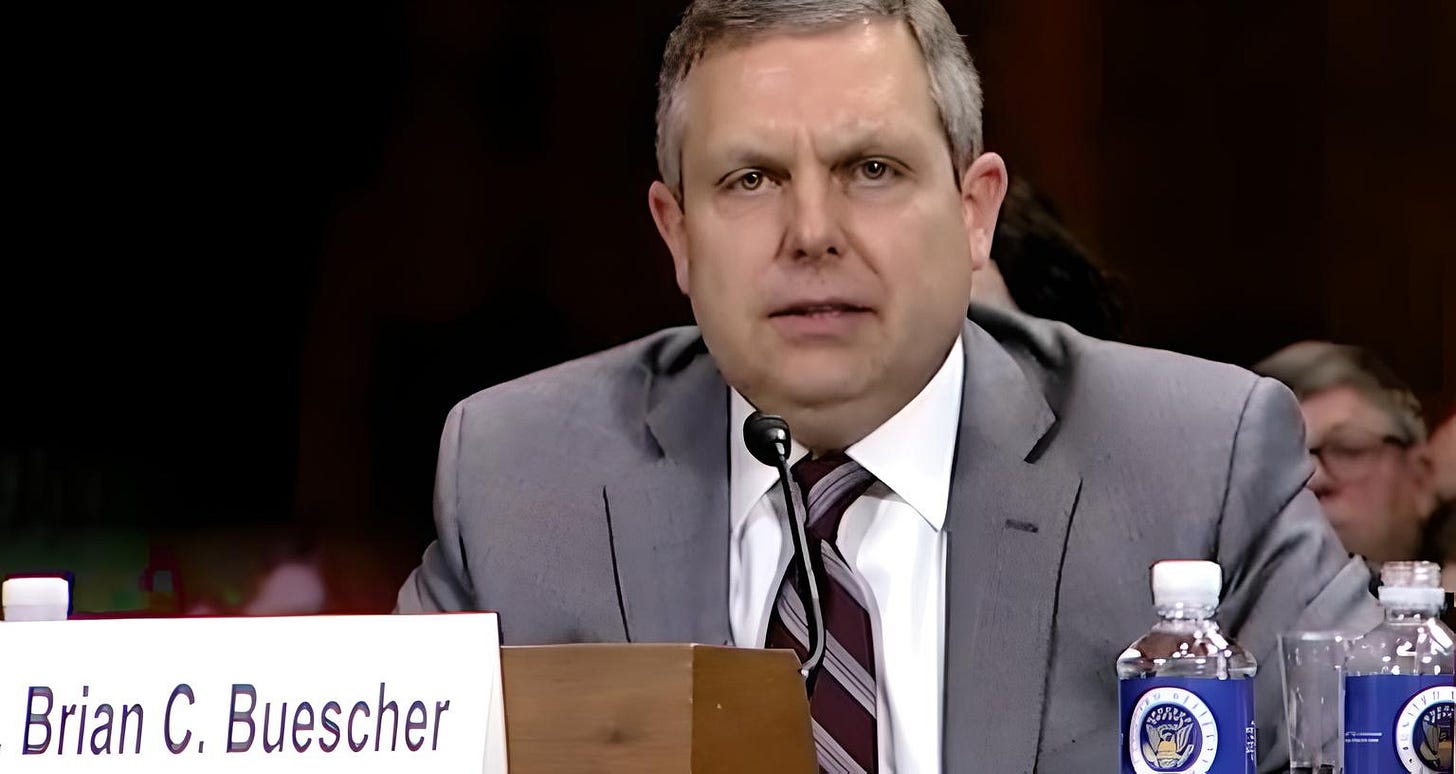FEMA Flood Insurance Cuts, New FMB Town Hall, and an Easter to Remember Top the News in the Sun Bay
The New Edition of Sun Bay Paper is Available at www.SunBayPaper.com
The April 4th Sun Bay Paper has hit the streets. In this week's edition, crucial developments captivate our readers: FEMA's sudden flood insurance discount cuts leave Lee County adrift, Fort Myers Beach secures a $7 million landmark deal for a new Town Hall, and the Beach Baptist Church's resilience shines as it continues Easter traditions amid recovery.
In The Right Side, columnist J. Gary DiLaura explains why the “OBiden Agenda” should not fool anyone. The FBI RED (Retired and Extremely Dangerous) also addresses “The Value of Climate Control…” in the Environmental Column.
Steve Bakke questions whether we will see a “Republican House, Democratic Speaker.” Greg Maresca, in his piece “It Begins With Sunday,” helps us remember the importance of Easter.
Easter is also on the Editorial Page, exploring the shifting dynamics within the Democratic Party. President Biden’s disrespect for religious values and attacks on core beliefs contrast sharply with former President Trump's defense of religious liberties. The undersigned concludes that with a string of past attacks on the religious beliefs of judicial nominees, the Knights of Columbus (a lay order of the Church), and now the eclipse of the significance of Jesus Christ's Resurrection with “Transgender Day,” the Democrat Party has abandoned Roman Catholics.
We cover a blend of national, local, and interest issues for our readership. A Texas judge released migrants in a chaotic border situation, underscoring the complexities of border security and immigration laws.
Lee County is alive with spring events, from the Bailey-Matthews National Shell Museum & Aquarium's reopening to diverse cultural, conservation, and leisure activities, highlighting the area's dynamic charm.
April is Parkinson’s Awareness Month. We spoke with Mary Schoeffel, the Executive Director of the Parkinson’s Association of Southwest Florida. We look at some studies revealing classical music's ability to boost health and longevity by triggering genes that heal the body, including in the context of Parkinson’s Disease.
If you want to know where to get a copy near you, call 239-267-4000. We distribute in Lee County from Downtown Fort Myers south to Bonita Beach Road, from US 41, and West to the Sun Bay and the Beaches.
The Sun Bay Paper is also available digitally at www.SunBayPaper.com.
We are launching a subscription service in the coming days. If you are interested, please email production@sunbaypaper.com with your details, and we will send you information about how to have new paper editions mailed to you for a fee.
Thanks for reading.
Richard Luthmann
Editor in Chief, Sun Bay Paper
FEMA Cuts Flood Insurance Discounts: FMB, Lee County Left High and Dry
In an unexpected move last week, FEMA announced changes to the National Flood Insurance Program (NFIP) discounts, impacting Lee County and its cities, including Fort Myers, Fort Myers Beach, Bonita Springs, Cape Coral, and Estero. This decision, communicated verbally without prior notice, has axed premium discounts by up to 25%, affecting nearly 699,000 residents. The cutbacks are set to take effect on October 1, leaving the community blindsided as it still grapples with Hurricane Ian's aftermath.
Elected officials, including County Commission Chairman Mike Greenwell and FMB Mayor Dan Allers, have voiced strong opposition to FEMA's sudden and uncommunicated decision. Greenwell criticized the federal government for making such a punitive decision without discussions, especially as the community is still recovering from Hurricane Ian, one of the costliest hurricanes to hit the United States.

"Many of our residents are still reeling financially from its impacts," Greenwell stated.
FMB Mayor Dan Allers echoed the sentiment, highlighting FEMA's lack of warning or communication.
"A rash decision like this will significantly strain our residents struggling to recover from Hurricane Ian," Allers said.
He demanded that FEMA suspend their decision immediately.
The federal move reneges on discounts that resulted from Lee County's diligent participation in FEMA's Community Rating System (CRS), saving taxpayers millions annually. The county and its municipalities have gone above and beyond in adhering to FEMA and NFIP standards, especially post-Ian, aiming to ensure lower rates for residents.
Cape Coral Mayor John Gunter and City Manager Michael Ilczyszyn expressed deep concerns and called for FEMA to halt its decision for a proper discussion. Ilczyszyn stressed the city's hard work over the years to achieve its current rating, emphasizing the importance of a chance to address FEMA's concerns.
Lee County officials are exploring legal remedies and have emphasized the need for an appeal process. They argue that FEMA's decision, made without documented evidence of noncompliance, unjustly compounds the financial burdens already faced by residents and businesses due to Hurricane Ian.
For 17 years, Lee County has benefitted from a Class 5 rating in the NFIP's CRS, availing a 25% discount on flood insurance policies. This discount, valued at $14 million to $17 million annually for unincorporated Lee County alone, signifies the county's commitment to exceeding NFIP standards through various floodplain management activities.
Lee County and its cities call for FEMA to reconsider and engage in meaningful discussions. They stand united in their frustration and demand transparency, communication, and support from the federal government in the ongoing recovery efforts.
Fort Myers Beach Set for New Town Hall in $7 Million Landmark Deal
Fort Myers Beach Town Council sealed a transformative deal on Monday, approving the $7 million acquisition of commercial property at 6231 Estero Boulevard, earmarked as the future site of the Town Hall. The strategic move comes on the heels of a state legislature announcement promising $8 million towards replacing the town hall, previously ravaged by Hurricane Ian. "This is a game changer," Vice Mayor Jim Atterholt remarked, highlighting the significant impact of the purchase.
Negotiations, spearheaded by Town Manager Andy Hyatt, culminated in the agreement to buy the building, which was assessed between $5.6 million and $7 million. Despite needing state approval for the funds, spearheaded by Gov. Ron DeSantis, the town has prepared contingency plans. "The bill of sale is conditioned on funding from the state," Director of Operations Frankie Kropacek disclosed, asserting readiness for various outcomes.
After initiating an offer of $5.5 million, Hyatt eventually agreed to the $7 million price tag, emphasizing the building's resilience to Hurricane Ian and its prime location. The property, previously evaluated for other municipal uses, stood out for its suitability and potential savings for taxpayers. The absence of public discussion on the purchase was strategic, aimed at preventing price inflation due to governmental interest.
Mayor Dan Allers noted the building had been under consideration for over a year, alongside other sites. "With the help of our delegation, we have the potential to purchase the building, saving the taxpayers a great deal of money," Allers said, pointing to the advantages of buying over building anew. Despite its unusual nature, the council's discreet approach to the purchase was deemed necessary to secure the best deal.
The purchased building, formerly housing Sunstream Realty offices and the Esterra Salon & Spa, represents a substantial saving over initial town hall rebuild estimates ranging from $18 million to $25 million. It features around 42 parking spaces, with additional parking solutions being explored. The site is positioned near significant local landmarks and offers strategic advantages for the town's redevelopment efforts.
In addition to addressing the town hall's replacement, discussions covered using temporary trailers and the necessity of minor upgrades to the purchased building, including elevator repairs. Anticipated to host council chambers on its minimally damaged first floor, the building is poised to become the heart of municipal operations by early 2025.
This purchase blends fiscal prudence with strategic foresight to rebuild and revitalize the community's administrative core.
Beach Baptist Church Stands Resilient Amid Hurricane Recovery, Continues Easter Tradition
Fort Myers Beach's Beach Baptist Church embodies hope and unity as it observes another Easter amidst ongoing recovery from Hurricane Ian. "I’m hugging everybody because it’s really exciting to see everybody still here for another Easter after Ian," Pastor Mallie Critser expressed, highlighting the church's role in rallying the community. Pastor Shawn Critser affirmed, "Beach Baptist will always be part of the community."
Despite challenges posed by COVID-19 and Hurricane Ian, the church has never faltered. Despite being destroyed and demolished after the storm, the congregation kept its 20-year tradition of Easter Sunday gatherings intact. Currently, services take place in a tent as the congregation works towards rebuilding. "We never missed an Easter service since I have been here," Shawn noted.
With plans to rejuvenate stronger, Pastor Shawn shared, "We’re sitting on three acres, had five buildings, we are down to basically nine, so we’re going to clear the land, sell a piece of it, and then rebuild." Inspired by the church's resilience, Volunteer Debbie Sams reflected on the community's deep connection to the church.
The church's immediate focus is on providing support and a place for the community to come together. "We hope to just be there as people here to rebuild, to help from our market, just a place to come and hang or to meet," Pastor Shawn said, emphasizing their commitment to community involvement.
This Easter symbolizes more than a religious celebration; it marks a step forward in collective recovery and renewal. "Just to be an integral part of the community is what we are here for," Pastor Shawn concluded, capturing the church's enduring spirit.
Editorial: Only Trump Supports the Values of Roman Catholics and Broader Religious Communities
When did the Democratic Party turn against Catholics? This question gains urgency following Joe Biden's recent actions and a history of skepticism toward religious nominees. Biden's declaration of "The International Transgender Day of Visibility" on Easter Sunday is the latest in a series of moves that critics argue show a disregard for Catholic and Christian beliefs.
The Democratic Party's actions, from questioning the faith of judicial nominees to Biden's Easter proclamation, signal a challenging time for Catholics and religious Americans. This Easter's events are a stark reminder of the growing divide, emphasizing the need for a political landscape that respects and upholds religious freedom.
This trend has been evident for over a decade, notably during the Trump administration. Democratic senators regularly interrogate judicial nominees based on their faith. Their focus often zeroes in on connections with the Catholic Church or organizations like the Knights of Columbus. These inquiries hint at a belief that adherence to Catholic teachings might disqualify someone from public service.
In 2018, then-California U.S. Senator Kamala Harris questioned Brian Buescher about his Knights of Columbus membership, focusing on the organization's opposition to abortion and same-sex marriage. Similar questions were directed at other Catholic nominees. These actions raised concerns about a bias against Catholics and an inability to separate personal beliefs from professional duties. Buescher was ultimately confirmed as a United States District Judge for the United States District Court for the District of Nebraska, but not until after he and the good name of the Knights of Columbus were dragged through the mud for their religious convictions.
The Knights, founded in 1882, is a lay order of the Roman Catholic Church that serves Catholics and the larger community by promoting charity and fraternity. However, its core principles, including opposition to abortion and support for traditional marriage, have drawn scrutiny from critics like Harris. Yet, these principles reflect Church teachings and the beliefs of millions of Americans, not extremism.
Joe Biden's recent proclamation, aligning "Transgender Day" with Easter Sunday, sparked further controversy. Critics see it as an insult to Christians, overshadowing a day meant to celebrate the resurrection of Jesus Christ. Responses from conservatives, including calls for an apology, reflect a deepening rift between the Biden administration and religious Americans.
Biden claims his Irish Catholicism is a vital part of his identity. In both philosophy and style, he resembles the populist, genial, handshaking, back-slapping, and often-underestimated Irish American Democratic Party bosses of the past. While often conservative in their values (e.g., abortion, the relationship of church and state), Irish Catholics formed the backbone of the Democratic Party from the massive immigration in the 19th century onward. As late as 1964, 76 percent of U.S. Catholics voted for Lyndon Johnson.
However, in recent elections, most non-Hispanic Catholics have voted for the Republican Party, which has become increasingly the national party identified with the needs of the religious. Supporters often cite Donald Trump’s tenure as the most significant presidential defense of religious freedoms and values in U.S. history—even greater than the “Reagan Revolution.” Instead of running away from religion, the first Trump presidency embraced the moral demands of practicing Catholics and Christians. Trump's judicial appointments and policies are viewed as fully supportive of Judeo-Christian beliefs and religious rights, standing in stark contrast to the current administration's approach of attack and marginalization.

The Democratic Party's stance on religion, particularly its handling of Catholic nominees and the recent Easter proclamation, suggests a departure from its traditional respect for religious beliefs. This shift has not gone unnoticed, prompting calls for reflection among voters of faith. The contrast with Trump's approach underscores a significant divide in American politics over the role of religion and the respect afforded to religious beliefs. Joe Biden may very well become the last national Democratic Party leader who will be permitted to identify as Roman Catholic.
Texas Judge Frees Migrants After Border Chaos
In an unexpected move, a Texas judge on March 31 ordered the release of several migrants detained after a chaotic stampede at the U.S.–Mexico border. This decision by Presiding Magistrate Judge Humberto Acosta during a teleconference bond hearing has sparked a new chapter in the ongoing debate over border security and immigration enforcement in the United States.
The individuals in question, primarily Venezuelan nationals, were arrested following an incident on March 21 where groups of migrants overwhelmed troops and law enforcement by tearing down razor wire along the Rio Grande and charging at a nearby border fence. This confrontation not only highlighted the desperate measures some migrants are willing to take to enter the U.S. but also the immediate challenges facing border security forces.
Judge Acosta, citing the El Paso District Attorney’s Office's lack of readiness to proceed with the cases, mandated the release of the accused migrants. "It is the ruling of the court that all the rioting participation cases will be released on their own recognizance,” Acosta declared, emphasizing the court's decision to prioritize judicial efficiency over prolonged detention without trial. This move, while procedural, underscores the ongoing strain on local legal systems caused by border-related incidents.
In the days leading up to the stampede and subsequent arrests, Texas had ramped up its border security efforts in response to a surge in illegal crossings. The Texas National Guard deployed approximately 200 soldiers to El Paso, a city that has become a focal point in the broader national discourse on border security. According to the Governor's Office, this deployment was part of a strategy to reinforce existing barriers and repel illegal crossings.
However, El Paso Mayor Oscar Leeser, a Democrat, voiced his opposition to the militarization of the border, stating explicitly that he did not request National Guard troops. His statement reflects the tensions between state and local governance over managing border security best while respecting the rights and needs of border communities.
The incident and its aftermath come at a time when the U.S. is experiencing a significant uptick in illegal border crossings. Customs and Border Protection reported 140,644 arrests in February alone, which is part of a broader trend of increasing attempts to cross the border. These numbers have fueled political and public debate over the Biden administration's handling of border policy and the effectiveness of existing immigration laws.
One such law, Texas' SB4, which allows for the arrest of individuals suspected of being in the U.S. illegally, has become a lightning rod for controversy. Though temporarily halted by legal challenges, the law's enforcement has been vigorously defended by Texas Governor Greg Abbott, a Republican, who argues that stringent measures are necessary to deter illegal immigration. Abbott's stance has been echoed by House Speaker Mike Johnson (R-La.), who criticized the federal government's border management during a recent visit to Texas.
Balancing border security, immigration enforcement, and humanitarian concerns, local jurisdictions like El Paso are often left powerless to navigate the implications of the failure of federal and state policies.
The Power of Classical Music: Activating 'Self-Healing' Genes for Improved Health and Longevity
Researchers have discovered that classical music goes beyond mere entertainment. It taps into our body's innate self-healing mechanisms to facilitate DNA repair and promote overall health. Dr. Carlo Ventura's research has revealed that the impact of music encompasses our entire being, not just our auditory senses.
The study, conducted in Spain on June 14, 2022, at the Auditorio de Galicia, Santiago of Compostela, focused on the effects of a 50-minute classical music concert on individuals with Alzheimer’s disease and age-related cognitive disorders alongside a healthy control group. The findings were remarkable, showing a 2.3 times increase in gene activity related to neurodegeneration in the afflicted group compared to the healthy participants. This study, published in 2023 in Scientific Reports, a journal within the Nature Portfolio, underscores classical music's potential in cellular self-healing, particularly in the breakdown of diseased brain cells in Alzheimer’s disease.
This discovery is significant, offering a simple yet effective method to enhance our body's natural defenses against various ailments. Music, mainly classical music, has now been identified as a catalyst in activating the self-repair processes within our DNA, which is crucial for combating degenerative diseases and aging.
This resonates with the insight from Sufi musician Hazrat Inayat Khan, who remarked, "A person does not hear sound only through the ears; he hears sound through every pore of his body."
Expanding on this, a collaborative study between Finnish scientists and artists analyzed the gene expression profiles of individuals exposed to classical music versus those who were not. The outcomes highlighted an increase in genes associated with dopamine production, a neurotransmitter responsible for feelings of well-being and happiness. The NR3C1 gene, known for enhancing dopamine levels, was upregulated, suggesting a direct correlation between classical music and improved mental health.
The study results also pointed to the activation of alpha-synuclein. This gene helps maintain balanced dopamine levels and is linked to Parkinson’s disease (PD), a complex neurodegenerative disorder for which both rare and common genetic variants contribute to disease risk, onset, and progression. Mutations in more than 20 genes have been associated with the disease.
Mary C. Schoeffel is the Executive Director of the Parkinson’s Association of Southwest Florida. Schoeffel says clinical findings like the health links to classical music play an essential role in the organization’s educational outreach as the intersection of music and medicine opens new avenues.
“Our education committee is dedicated to bringing the best possible information to our community so that you can understand and live well with PD,” Schoeffel said.
April is Parkinson’s Awareness Month, and the SWFL Parkinson’s Association provides free informational resources to the community (parkinsonassociationswfl.org).
“Our membership is free of charge, and we are not connected to any national organization,” Schoeffel said.
The implications of these studies extend beyond immediate health benefits, suggesting a potential impact on longevity. Historical data from a MetLife study conducted between 1956 and 1975 revealed that symphony orchestra conductors had a mortality rate 38 percent lower than the general population, with those aged 50 to 59 experiencing a 56 percent lower death rate despite the stresses of their profession. This contrasts with research on 1,064 famous North American and European pop stars, whose mortality rate was significantly higher than that of the general public, pointing towards the type of music and possibly the lifestyle associated with it as influential factors in DNA response and overall lifespan.
These findings present a compelling case for the role of classical music in enhancing the body's ability to self-repair at a genetic level, potentially contributing to a longer and healthier life. It also raises questions about the impact of different music genres on our health and well-being, suggesting that the benefits of music extend far beyond its aesthetic and emotional appeal.
Research continues to unravel non-invasive therapy options that capitalize on our natural biological processes. In the intricate relationship between sound frequencies and genetic expression, classical music emerges not just as a source of cultural enrichment but as a key to unlocking our genetic potential for healing and longevity.
Discover Lee County's Spring Events
April begins springtime in Lee County, and the area is bustling with activities for everyone. From the Bailey-Matthews National Shell Museum & Aquarium reopening to a full calendar of spring events, this guide will help you make the most of your visit or daytime excursion.
Why Visit Lee County? The history of Lee County as a tourist destination dates back to March 19, 1885, when the first tarpon on record was caught. This event put Southwest Florida on the map as a sport fishing paradise, attracting celebrities and presidents. Today, anglers still flock here each April for tarpon season, highlighted by three catch-and-release tournaments in May.
Tarpon Tournaments:
12th Annual "Ding" Darling & Doc Ford's Tarpon Tournament on May 10 at Sanibel Island celebrates fishing history and supports local wildlife conservation.
South Seas Tarpon Tournament on May 17 at Captiva Island benefits Folds of Honor, providing scholarships to families of America's military and first responders.
World's Richest Tarpon Tournament on May 22-23 at Boca Grande focuses on conservation, education, and sportsmanship.
April Excitement in FMB and nearby locales:
Fins Up! Beach Club at Margaritaville Beach Resort is the latest attraction. Offering resort guests and day pass holders an action-packed aquatic playground, it's a must-visit for fun on the Gulf of Mexico.
Bailey-Matthews National Shell Museum & Aquarium on Sanibel Island, a short drive from FMB, reopens with expanded exhibits. It's a fascinating day out for those interested in marine life.
Calusa Blueway Challenge invites paddling enthusiasts to explore the Great Calusa Blueway Paddling Trail, while the Sun Saver Passport delivers deals across dining, entertainment, and shopping, enriching your visit without stretching your budget.
Key Events:
India Fest 2024 on April 6 promises a day full of vibrant culture and tradition at Caloosa Sound Amphitheater in Fort Myers. Enjoy South Asian cuisine, fashion shows, dance performances, and the colorful Holi Color Play.
Garden Tea Party at Edison and Ford Winter Estates on April 11 offers a unique afternoon celebrating Clara Ford's birthday with tea and historical insights in a beautiful garden setting.
The "Ding" Darling Day Conservation Carnival on April 20 aligns with Earth Day celebrations, featuring outdoor activities for all ages at Lakes Park in Fort Myers. It’s a fantastic way to engage with local conservation efforts.
Friends of Six Mile Cypress Slough Speaker Series on April 24 in Fort Myers highlights the importance of pollinators in our ecosystem, a topic of interest for nature lovers.
April in Fort Myers Beach and its environs is teeming with activities that cater to every interest, from cultural festivities and environmental education to luxurious stays and beachfront leisure. Don't miss out on these highlights for a memorable spring experience.
Check out the new 2024 Visitor Guide for everything to assist in making springtime memories.














